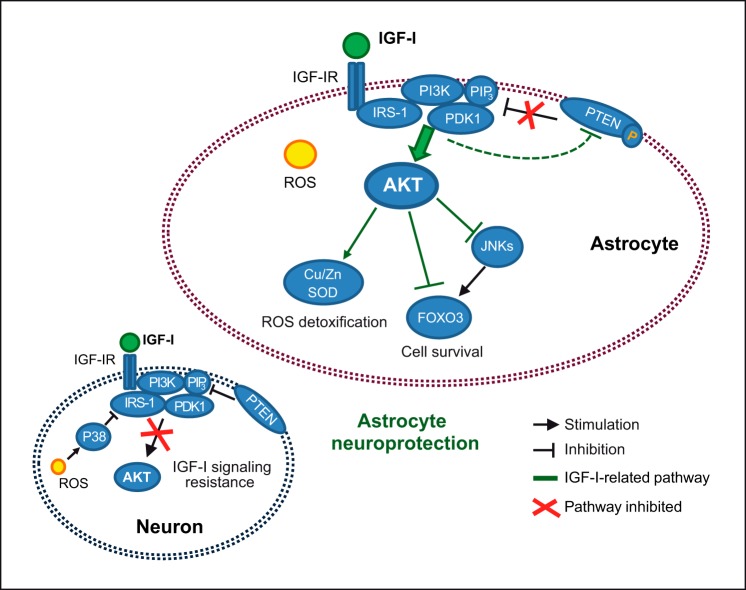FIGURE 7.
In astrocytes, IGF-I induces the stimulation of the prosurvival kinase AKT by the activation of a signaling cascade that includes IRS-1 phosphorylation, translocation of PI3K to the membrane (allowing PIP3 generation and AKT recruitment), and activation of AKT by PDK1/mTORC2 kinases. Oxidative stress (generated by an uncontrollable ROS increase) can induce redox activation of p38 kinase in several cells types. In neurons, p38 induces IGF-I resistance, preventing IRS-1 phosphorylation by IGF-I receptor IGF-IR, whereas in astrocytes, this response is not present. Furthermore, IGF-I induces only in astrocytes the inactivation of the phosphatase PTEN (by inducing its phosphorylation and cytosolic translocation), preserving in this way generation of PIP3 and AKT activation in both normal and oxidative stress conditions. Armoring of AKT activation by IGF-I increases astrocyte survival during oxidative stress through inactivation of the proapoptotic FOXO3 transcription factor (by its phosphorylation by AKT and by inactivation of JNKs) and stimulation of ROS-detoxifying enzymes. Furthermore, AKT activation is also necessary to preserve the neuroprotective action of astrocytes.

